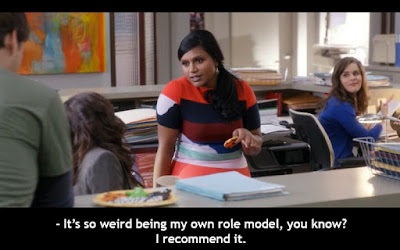“Vanity is the quicksand of reason.”
I have officially been on steroids for over three months now. That’s long enough to be considered “long term.” That’s long enough to be fully enjoying all of Prednisone’s many and wonderful side effects.
The list of things steroids can do to your body is lengthy, and laughable in how awful they are. From severe mood swings to insomnia to acne to hand tremors, I’ve experienced the whole gang at this point. My joints have become arthritic. I pee like, 74 times a day.
Why on earth would anyone take these devil pills? You might ask. And that’s a great question! It’s one I field a lot! Because it does seem that if a steroid is causing so many problems, wouldn’t you just stop taking it? But the problem is, people on steroids are on them because whatever disease it is they have has become so bad that things like three hours of sleep a night or a perpetual tremor don’t seem all that bad anymore. For me in my current flare, not being on the steroids would mean bleeding in my intestines and being in so much pain I wouldn’t be able to go to work. When not being able to live your life is the alternative, you deal with a mood swing or ten.
So all in all, it’s a catch 22 of a shitty situation (all the puns intended.) And yet, with all of these serious medical issues swirling around me, there’s one I keep getting caught up on: moon face.
Moon face is a cutesy way of referring to the fact that Prednisone can make your face swell and get super round. I’ve always had a lot of baby fat in my face–– even in my best shape during my super active teenage years, I still had the face of a Cabbage Patch Kid. It’s something that I’ve always been self-conscious about, even while I preached to others about self love and body acceptance.
So when the Prednisone, over time, started to grow my large face even bigger like some kind of sad version of the blueberry girl from Willy Wonka, I tried not to let it bother me. I tried to tell myself that I’m an adult, and I’m too old for silly vanity and self-consciousness about how I look. But you know what? Apparently I’m not that enlightened.
 |
| When you think your face can't get any wider, the universe surprises you~ |
I don’t think we ever really “grow out of” caring how we look, no matter how zen we try to be. I know in my heart that the roundness of my face is really not what matters in my life right now–– especially when I need to be focused on my physical and mental health–– but some days it’s okay to give in to the less mature parts of our nature and just admit we feel insecure sometimes. I know my ability to eat and go to work and live life is more important than how I look in my friends’ Instagram photos, but it doesn’t make my feelings about how I look less valid. For better or worse we live in a society that places so much of a premium on physical beauty, so when your body is already malfunctioning, it’s hard to also feel like you don’t have control of what others see.
So maybe one day I’ll come to you, totally not caring about looking like a female Humpty Dumpty. But if I always care a little, that’s okay, too. In the meantime, I’m going to go watch a YouTube tutorial about how to contour my face into oblivion. 














